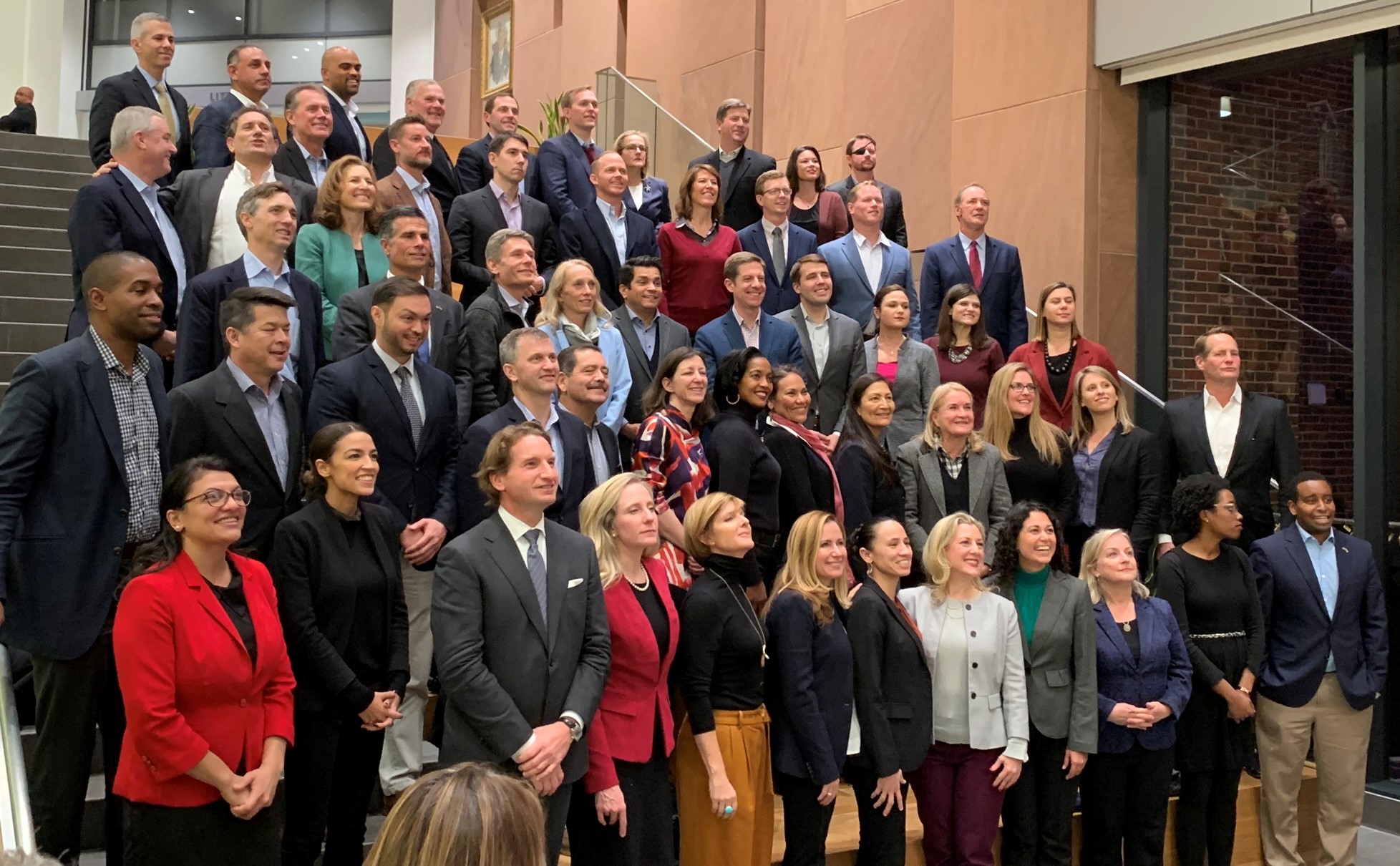BY HILARY GELFOND
While in attendance at the Harvard Kennedy School’s bipartisan conference for newly elected members of Congress, Alexandria Ocasio-Cortez tweeted that “[our] ‘bipartisan’ Congressional orientation is cohosted by a corporate lobbyist group.”
The conference, which was jointly hosted with the American Enterprise Institute (AEI), the Center for Strategic and International Studies (CSIS) and the Congressional Institute has been a tradition since 1972. Its aim is to teach new members in a neutral setting about key policy issues and how to navigate Capitol Hill. In speaking out against the orientation, Ocasio-Cortez and other members of the progressive caucus who raised their voices, such as Ayanna Pressley and Rashida Tlaib, misconstrue the facts, while at the same time ignore the important lessons about bipartisanship that the conference sought to teach.
The need for Members of Congress to work together cannot be more urgent, given the portfolio of complex issues the U.S. will face in the coming years. We are currently in the midst of an evolving economy fueled by rapid technological development. High levels of income inequality will lead more and more people to get left behind. We face pending crises in funding for Social Security, as well as rising Medicare costs and skyrocketing government debt. Internationally, we face a divided world in which the United States’ role as the sole hegemon is declining. None of these issues will be solved without compromise.
At the same time, Congress, as well as the American electorate, are more divided than ever. Since 1994, the share of members of each political party who have extremely negative views of the other has more than doubled. The average Democratic voter has become more liberal while the average Republican voter has gotten more conservative, leaving little room in the middle for political compromise. This is reflected in the increasing polarization of members of Congress and a decline in cross-party voting over time.
By limiting what one hears to an echo chamber of progressive (or any other) sentiment, one severely constrains their ability to find common ground and work together to solve our hardest challenges. In refusing to listen to those who don’t agree with us, we undermine our own interests in failing to learn about solutions that we may have never considered on our own.
In fact, history shows that it was only through listening to the ideas from those across the aisle that we made progress on pressing policy issues. Consider that the individual mandate, which was the cornerstone of President Obama’s Affordable Care Act, was developed by researchers at the conservative Heritage Foundation. Or, consider that in 1983, President Reagan, a staunch Republican, and Speaker of the House Tip O’Neil, a liberal, joined together to fundamentally reform Social Security.
To Ocasio-Cortez’s point, it is true that corporate interests were well-represented at the conference. But listening to America’s business leaders is vital, as it allows us to gain foresight into industry trends, the ways in which companies operate within the constraints of the American regulatory environment and may even contribute to the development of unique ways to spread economic growth to all. And while Ocasio-Cortez is also right in that labor leaders were not represented at the conference, members did hear from other presenters and faculty members who have performed extensive research on the working class.
Furthermore, by refusing to even sit in on panels led by public servants such as U.S. Secretary of Transportation Elaine Chao, newly elected progressive members deprived themselves of the opportunity to learn more about the current state of affairs within the Trump administration that they could then have used as leverage in their own efforts to make change.
On the eve of this incredibly diverse class of newly elected members entering Congress, let’s also embrace a diversity of ideas. We should resolve to listen to a varied group of experts. New members should engage with the work of a wide range of think tanks such as AEI and CSIS (which helped fund the new member conference), as well as the Brookings Institution, the Economic Policy Institute and the Center on Budget and Policy Priorities. New members should begin working on policy issues that have proven common ground. Let’s start with a carbon tax, which has been endorsed by members on both sides of the aisle. Let’s expand the Earned Income Tax Credit and Medicaid and shore up Social Security. Of utmost importance, let’s listen to what the other side has to say and work together on the universal mission that is the American Dream.
Hilary Gelfond is a Masters in Public Policy candidate at the Harvard Kennedy School and an associate editor at KSR. She previously worked at the Brookings Institution as part of the Urban-Brookings Tax Policy Center. Her work on economic policy has been featured in The New York Times, The Economist and The Washington Post.
Edited by Alyssa Davis
Photo by KSR Staff

